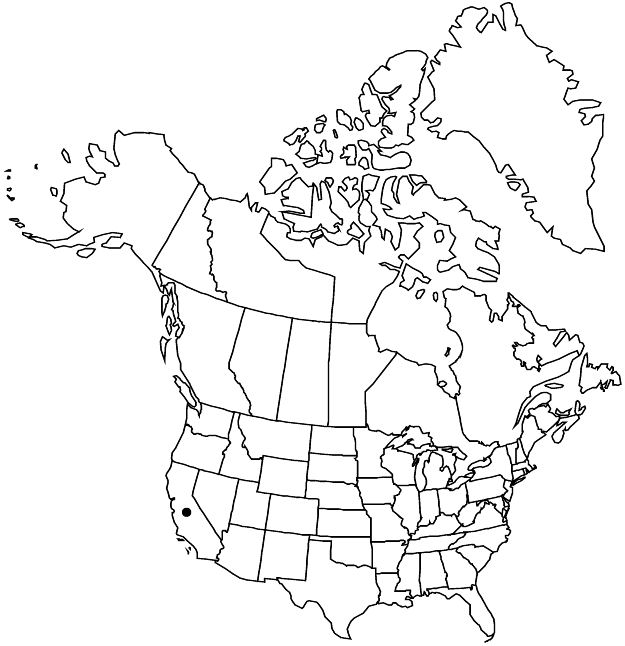Difference between revisions of "Ceanothus sonomensis"
Leafl. W. Bot. 2: 162. 1939.
FNA>Volume Importer |
imported>Volume Importer |
||
| (2 intermediate revisions by 2 users not shown) | |||
| Line 54: | Line 54: | ||
|publication year=1939 | |publication year=1939 | ||
|special status=Endemic;Conservation concern | |special status=Endemic;Conservation concern | ||
| − | |source xml=https:// | + | |source xml=https://bitbucket.org/aafc-mbb/fna-data-curation/src/2e0870ddd59836b60bcf96646a41e87ea5a5943a/coarse_grained_fna_xml/V12/V12_844.xml |
|genus=Ceanothus | |genus=Ceanothus | ||
|subgenus=Ceanothus subg. Cerastes | |subgenus=Ceanothus subg. Cerastes | ||
Latest revision as of 19:17, 5 November 2020
Shrubs, 0.5–1 m, often moundlike. Stems erect to ascending, not rooting at nodes; branchlets gray to grayish brown, rigid, strigillose, glabrescent. Leaves not fascicled; petiole 0–1 mm; blade cupped, widely obovate to suborbiculate, 5–12 × 2–10 mm, base cuneate, margins not revolute, wavy, spinose-dentate, teeth 2–4, apex widely notched; abaxial surface pale green or grayish green and glaucous, strigillose on veins, adaxial surface shiny green, glabrous. Inflorescences axillary or terminal, 0.8–1.5 cm. Flowers: sepals, petals, and nectary blue to lavender. Capsules 4–5 mm wide, usually not, sometimes weakly lobed; valves smooth, horns subapical, minute to ± prominent, erect, intermediate ridges absent. 2n = 24.
Phenology: Flowering Mar–Apr.
Habitat: Sandy to rocky soils derived mostly from volcanic substrates, slopes, ridges, chaparral.
Elevation: 100–700 m.
Discussion
Ceanothus sonomensis is distinctive in having spinose-dentate, few-toothed leaves, and slender fruit horns two to three millimeters; it occurs at a few scattered localities in the mountains of Napa and Sonoma counties.
Selected References
None.
